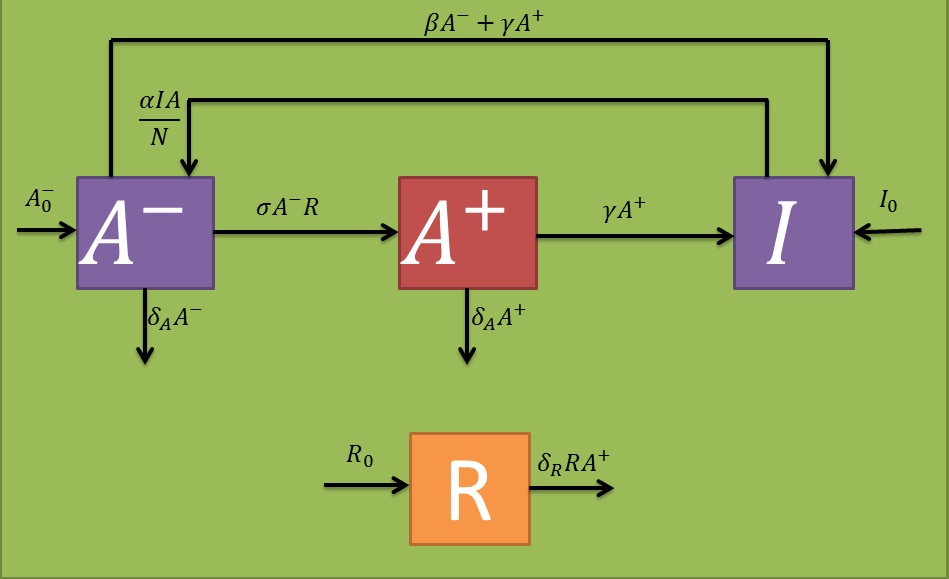Team:Colombia/Modeling/Ecological Model
From 2012.igem.org
(→Graphical Model) |
|||
| Line 26: | Line 26: | ||
==Graphical Model== | ==Graphical Model== | ||
| - | [[File:ecological.jpg| | + | [[File:ecological.jpg|500px|thumb|center]] |
The idea is to treat the population number as boxes with inflows and outflows. Each arrow represents the formula by which the different boxes are connected. Arrows that do not point to another box represent organisms that die. | The idea is to treat the population number as boxes with inflows and outflows. Each arrow represents the formula by which the different boxes are connected. Arrows that do not point to another box represent organisms that die. | ||
Revision as of 04:00, 27 September 2012
Template:Https://2012.igem.org/User:Tabima
Ecological Model
The following is a short preview of the ecological model we are currently working on.
General objective
To generate a computational model that simulates the most relevant ecological relationships between our engineered system and the plant pathogens inside the appropriate habitat.
Specific Objectives
- To limit the multifactorial ecological problem in a way that a simple mathematical model may be proposed. Such model should be able to answer relevant questions regarding the problem.
- To find the populational proportions between our organism, pathogens, and the host plants that optimize our biological control.
- To generate hypotheses for future experimental confirmations.
Graphical Model
The idea is to treat the population number as boxes with inflows and outflows. Each arrow represents the formula by which the different boxes are connected. Arrows that do not point to another box represent organisms that die.
- I stand for bacteria that are asleep.
- A stand for bacteria that are awake and active (+) or inactive (-).
- R stands for the coffee rust fungus.
- N stands for A + I
We plan to hand in a complete version of the model for the world championship if we classify! "
"
